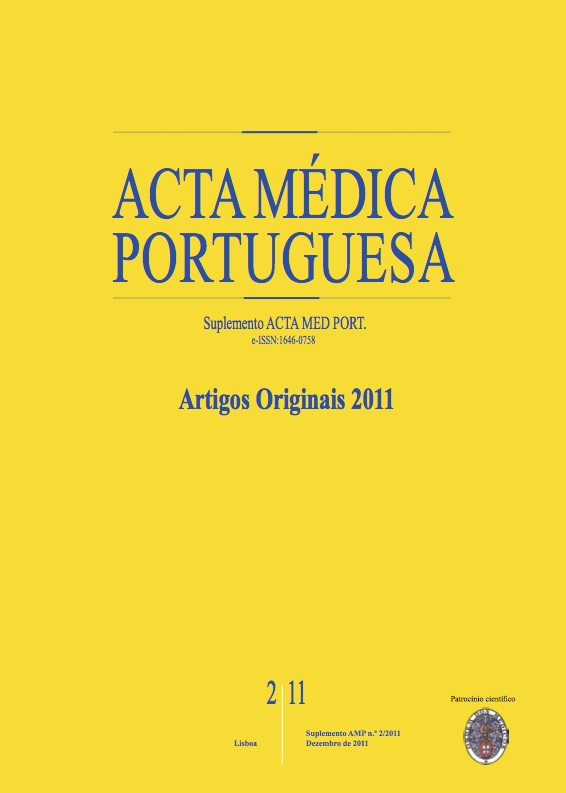Anticoagulation in elderly patients with atrial fibrillation: from the guidelines to the daily medical practice.
DOI:
https://doi.org/10.20344/amp.1488Abstract
Atrial fibrillation (AF) is a common medical problem with increasing prevalence among the elderly. Warfarin is effective in the prevention of AF-related-stroke but is often underutilized, especially in high-risk populations, like the elderly.To determine, in a group of elderly patients with AF, if those treated in-line with the clinical recommendations differ from patients who were not, regarding morbidity and mortality and also to determine independent predictors of mortality. A second objective was to verify if the CHADS2 score is a good predictor of thromboembolic risk in the elderly.A total of 161 consecutive elderly patients with AF admitted in a single centre were evaluated. Clinical follow-up was available for 88.4%, with a mean duration of 9 months.Mean age was 80.9 ± 6.6 years; 96.3% of the patients had permanent AF, with controlled ventricular rate in 56.4%. Previous stroke was verified in 30.4%. Only 37.3% had oral anticoagulation at hospital discharge, despite 87.6% had guideline recommendation. Cumulative mortality rate in follow-up was 48.4% and the thromboembolism rate was 8.1%. We verified that CHADS2 score was a good predictor of thromboembolic risk in this population (c-statistic=0.742). Clinical follow-up showed that patients treated according with the clinical recommendations were more likely to survive (33.33% vs 53.93%; p=0.048). Multivariate analysis showed that age >80 years, renal disease, neoplasm and neuropsychic disease as independent predictors of mortality (c-statistic=0.83).A gap of 50% existed between the guideline recommendations and actual practice. The use of risk stratification scores can help guide the decision to use anticoagulation in older patients with AF. Elderly patients treated according with the clinical recommendations had a better prognosis.Downloads
Downloads
How to Cite
Issue
Section
License
All the articles published in the AMP are open access and comply with the requirements of funding agencies or academic institutions. The AMP is governed by the terms of the Creative Commons ‘Attribution – Non-Commercial Use - (CC-BY-NC)’ license, regarding the use by third parties.
It is the author’s responsibility to obtain approval for the reproduction of figures, tables, etc. from other publications.
Upon acceptance of an article for publication, the authors will be asked to complete the ICMJE “Copyright Liability and Copyright Sharing Statement “(http://www.actamedicaportuguesa.com/info/AMP-NormasPublicacao.pdf) and the “Declaration of Potential Conflicts of Interest” (http:// www.icmje.org/conflicts-of-interest). An e-mail will be sent to the corresponding author to acknowledge receipt of the manuscript.
After publication, the authors are authorised to make their articles available in repositories of their institutions of origin, as long as they always mention where they were published and according to the Creative Commons license.









